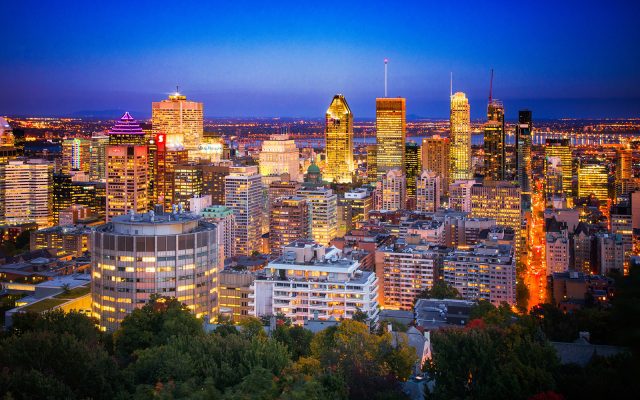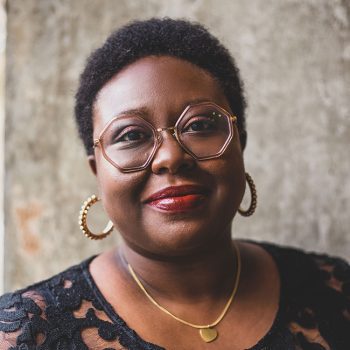Should Montreal be a 24-hour city?
The municipal council of Montreal will consider extending the opening hours of nightlife – but what does the on-trade make of its plans?

*This article was first published in the December 2024 issue of The Spirits Business magazine
Montreal’s new nightlife policy aims to “enrich the night-time experience to make the city even more pleasant to live in and make it an even more popular destination”. However, the city council has recently emphasised that “Montreal will not, however, become a city open 24 hours a day, seven days a week. The policy will be gradually deployed in limited locations, and in a well-supervised manner.”
The policy features 28 actions in three divisions, which were submitted to the municipal council for approval on 18 November, and will subsequently be subject to a consultation with key stakeholders in the industry. The nightlife consultation table will bring together 28 members from different sectors. Activities offered outside of “regular hours” will only be permitted in designated locations, with performance venues the first to be able to extend their hours. Areas in Montreal may also be designated, if they have several cultural and commercial sites and “are supported by a group and work together to offer safe night-time activities”. The policy that has received the most publicity, however, is the extension of opening hours. At the minute, bars and clubs have to close by 3am.
“The new laws on the 24-hour alcohol permits are not yet finalised, and we do not yet know what areas of the city will be able to apply,” says Alex San Gregorio of the city’s Bar Le Mal Nécessaire. “We will likely never want to stay open later than our current closing times of 2am, or 3am on Friday and Saturday nights.”
San Gregorio isn’t keen on the idea of designated areas where venues can stay open longer, and thinks the council should launch an open process where businesses can bid for extended permits: “This would have brought some international hospitality groups to the table with some very exciting proposals. What Montreal needs is a classier version of E11even Miami [a multi-level venue in Miami, Florida, US] – not a dozen college bars open until any hour of their choosing, creating customer and tourist confusion. For a 24-hour licence to work, there needs to be critical mass, otherwise I worry it will devolve into something unsavoury.”
Lukewarm outlook
Andrew Whibley, co-owner of the Cloakroom and Dominion cocktail bars and Le 9 event space, feels just as lukewarm: “Unless there was some drastic change, I don’t see myself keeping any of those spots open that late.” While he could keep his venues open until 3am at the moment, Dominion closes at 2am on the weekends, while Cloakroom stays open til 3am at the weekends but only 1am during the week. “Nothing good really happens after 1am usually – and from an operations standpoint, there isn’t that much business coming in downtown at those hours,” he explains. Dominion is usually fully booked from 5pm every day of the week until around 11pm, when the numbers begin to drop. “I don’t know many operators who have been screaming for this,” he adds.
“It strikes me as something from the city [council] – they try to implement things and find solutions, but I don’t think this is a solution to a problem that exists.”
He thinks the council’s priority should be driving traffic to the downtown area, which he says is currently hindered by the levels of construction in the area and the price of parking. He adds: “On a more personal level, l think I’m generally known to treat my staff pretty well, and I have a tremendous amount of respect for everyone who works for me. I wouldn’t want people to have to work all night – it’s not really a viable lifestyle.”
Sergio Da Silva, co-founder of Turbo Haüs, a live music venue and cocktail bar, says he’s likely to apply for a 24-hour licence, although he would only plan to extend hours for certain special events.
For him, the new Nightlife Policy shouldn’t focus on extended opening hours, explaining: “24-hour bars are not a silver bullet to solving the issues we’re having in this sector. Without an agent-of-change policy in place, venues will continue to shut down, and nightlife in the city will continue to suffer. I would like to see more to solve the issue of the cost of living. Ultimately, everything trickles down from the cost of living. Without disposable income, all the 24-hour policies in the world won’t do much to change things. It’s all connected.”

For city councillor Ericka Alneus, however, discussions of the 24-hour policy are a distraction from the rest of the action she hopes to take. “People thought that we would be like Vegas, where there are certain strips that are 24/7. That’s not the issue here,” she explains. “There are already certain nightlife activities to support and to recognise here.”
Rather than attempting to create a new nightlife landscape, Alneus believes the policies will be helpful in providing guidelines that help nightlife co-exist with other aspects of the city. “What we’re bringing in today is a policy to be able to give certain guidelines to make sure that this nightlife remains while being sensitive with the co-habitation,” she explains. She adds that with the current housing crisis, more houses and apartments are being built. “How do we make sure that we keep that nightlife vitality while having people who want to live quietly in their homes?”
For Alneus, the key part of the Nightlife Policy is its funding. The city intends to spend CA$5.5 million (US$3.95m) over three years to support establishments, with CA$2.5m going towards an aid programme for helping venues to reduce noise pollution. “Nightlife in Montreal is pretty organic. Certain institutions have become well-known and well-established, but are not fully equipped with soundproofing.”
Pole position
The policy will also create what Alneus describes as “nightlife poles”, which will be areas of the city that agree to a code of conduct, and receive funding for activities in return. She cites businesses beyond restaurants and bars, pointing to events held by dance collective Moonshine, as well as theatre productions that may finish later into the night. “People have an image – and I would stretch it to even say some stigma – of nightlife in Montreal. Yes, there are clubs, there are bars, but there are cultural manifestations too. The purpose of those poles is to really support that nightlife, while making sure that things are well regulated, and to make sure of a great cohabitation.”
The poles will also help reduce bureaucracy, with Alneus saying she hopes that certain organisations will take charge of activating nightlife within its pole. “It’s really focusing on activity that could be done, and what they were already doing,” she explains. “Before, they would have to get through some paperwork, and certain steps and processes. Now, by the fact that you’re recognised as a nightlife pole, you can fully enjoy your activity without having all the paperwork and processes to go through.”
“With all due respect to Vegas, which is a great city, we’re not heading towards 24/7. It’s not that if you’re in a pole, everything will go on 24/7. There’s not an obligation to participate,” she adds.
Related news
Disaronno grows in UK on-trade
